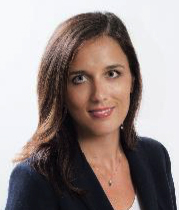By Ramona Ridolfi, BIDUK Program Manager
The topic of reducing gender bias in recruitment processes is not new. In fact, we’ve been hearing about it for the past decade. There are articles full of tips for recruiting a diverse team, having a balanced panel of interviewers, advertising job positions that attract both genders and diverse backgrounds.
If you do a google search, the reflections out there are mostly around “visible bias.” How do you attract women or men in positions that are typically dominated by a specific gender? How do you promote women in higher positions? What questions can you ask? What should you not ask? (E.g. asking female candidates about their intention of marrying or having children has become illegal in many countries, yet, unfortunately, we still hear of women being asked this.)
At Athena, we want to go beyond the visible bias and challenge our hidden bias. This means reflecting on how our own recruitment panel may have biased perceptions that could influence the final decision about the candidates we are interviewing. Sometimes people’s biases can be evident and determined by local context and influences, for example, stating explicitly or assuming that a male candidate would be better suited for a job with frequent travel compared to a woman, wife, mother. Sadly, I’ve heard this previously.

As a recruitment team, how do we recognize our hidden biases? If we can recognize them, how do we change them?
Other times we can also be biased unintentionally and without explicitly showing it. For example, there is a wealth of research out there about the “Confidence Gap,” which is evident when women sell themselves short in interviews while men put themselves out there on full display. (Harvard study, quoted here). As a recruitment team, how do we react to this situation? Do we stop at the confidence level, or do we dig deeper into candidates’ accomplishments when they state that they can do something? And do we react differently if a man or a woman were to show confidence? In other words, do we consider confidence differently—positively or negatively—depending on who we have in front of us?
It’s also been proven that “Acing an interview is only tangentially related to doing a job well. Sometimes the best people are the least effective in advocating for themselves,” says Robin Mamlet, senior partner and managing director of the education practice at executive search firm WittKieffer in Philadelphia.
So how do we overcome this unintentional, hidden bias? I don’t think there is one solution, but the most obvious one to me personally is to put on the plate all criteria that would help the team make the best decision about the candidates they are interviewing. Is confidence what we need for this specific role? How about their commitment, willingness to learn, flexibility to an adaptive role and management systems, ambition to grow within the office? Are we judging the candidates differently based on their gender?
There’s more: I am intentionally leaving out experience. Unless we are hiring for a job that requires specific hours of experience (e.g. a pilot), let’s also keep in mind that female candidates may have taken a maternity break and have slightly less experience than their male counterparts. For those who decide to have a family, this will impact their careers in some way and the sad news is that we won’t be able to overcome this inequality until we have equal parental leave policies in place. Everywhere. Are 6 months more on the CV going to make a real difference to the candidates’ performance and ability to learn in the new job?
Hidden bias is hard to recognize and hard to change. We may not see it until we really look for it, but we need to start reflecting on it as recruiters, teams and organizations if we want to build greater equality in the workplace.
Ramona Ridolfi has over a decade of experience with programs focused on promoting gender equality and women’s empowerment. Prior to BIDUK, she was Asia Regional Advisor with Helen Keller International (HKI), designing transformative approaches for the nutrition and health program portfolio. Previously, she was Gender Manager for HKI in Bangladesh. In Bangladesh, she also co-founded the (I)NGOs Gender Working Group, a network of organizations collaborating on gender-focused initiatives. Ramona also worked extensively with UN Women in Australia, West Africa, SE Asia and Pakistan. She holds a Master’s Degree in International Relations from Monash University, Melbourne (Australia).

